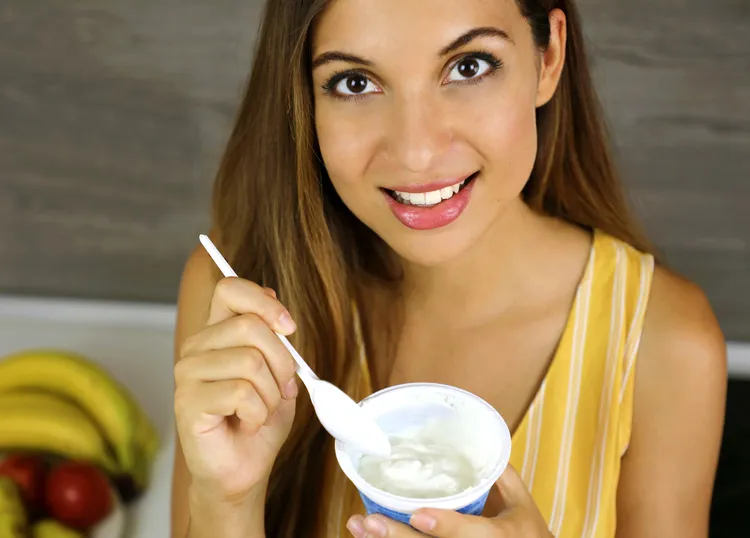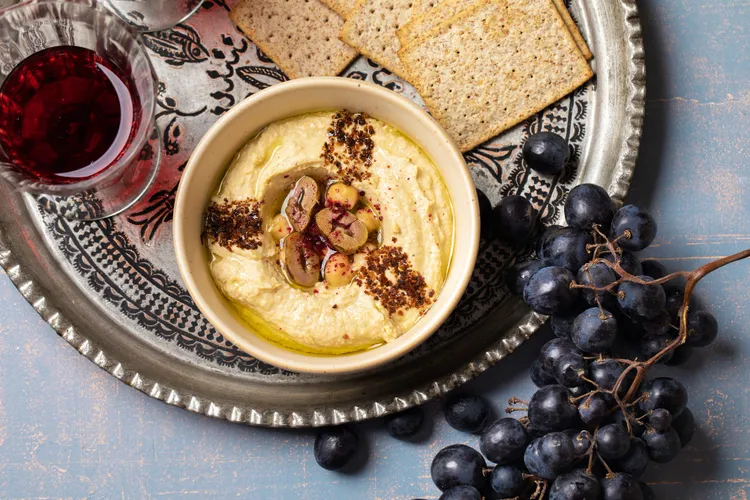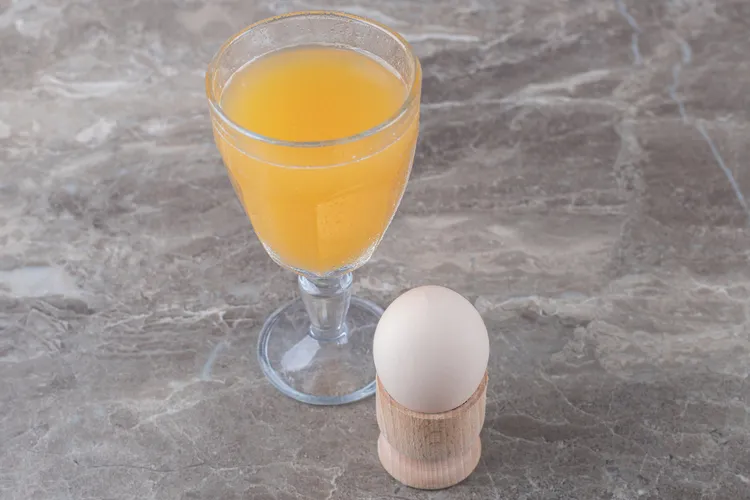The Importance of Probiotics in Food: A Deep Dive into Gut Health and Beyond
In recent years, the spotlight on gut health has illuminated the critical role of probiotics—live microorganisms that confer health benefits when consumed in adequate amounts. Found in fermented foods, supplements, and even some fortified products, probiotics are often hailed as the unsung heroes of a balanced diet. But why are probiotics so important, and how do they impact our physical and mental well-being? We’ll explore the science behind probiotics, their benefits, the best food sources, and practical ways to incorporate them into your daily diet for optimal health.

Understanding Probiotics: The Gut’s Best Friends
Probiotics are live bacteria and yeasts, often referred to as “good” or “friendly” bacteria, that support the health of your gut microbiome - the vast community of microorganisms living in your digestive tract. The gut microbiome plays a pivotal role in digestion, immunity, mental health, and even chronic disease prevention. Probiotics help maintain a balanced microbiome by promoting beneficial bacteria, crowding out harmful pathogens, and supporting the gut’s barrier function.
The most common probiotic strains belong to the Lactobacillus and Bifidobacterium families, though other strains like Saccharomyces boulardii (a yeast) are also widely studied. These microorganisms are naturally present in certain foods, particularly fermented ones, and can also be added to products like yogurts or taken as supplements.
But why does this matter? The gut is often called the “second brain” due to its extensive influence on overall health. An imbalanced microbiome - caused by poor diet, stress, antibiotics, or illness - can lead to digestive issues, weakened immunity, and even mental health challenges. Probiotics help restore harmony, making them a cornerstone of preventive and restorative health.
The Science-Backed Benefits of Probiotics
The importance of probiotics extends far beyond digestion. Research highlights their wide-ranging benefits, supported by a growing body of scientific evidence. Here’s a detailed look at how probiotics contribute to health:
- Digestive Health: The Foundation of Wellness
Probiotics are best known for supporting digestion. They help break down food, produce essential nutrients (like short-chain fatty acids), and maintain a healthy gut lining. Specific benefits include:
- Relieving Digestive Disorders: Probiotics can alleviate symptoms of irritable bowel syndrome (IBS), diarrhea (including antibiotic-associated diarrhea), and constipation. A 2020 meta-analysis in The Lancet Gastroenterology & Hepatology found that specific strains like Lactobacillus rhamnosus GG and Bifidobacterium lactis significantly reduce IBS symptoms.
- Restoring Balance After Antibiotics: Antibiotics can wipe out beneficial gut bacteria, leading to issues like diarrhea. Probiotics help repopulate the gut, as shown in a 2018 study in Clinical Infectious Diseases.
- Reducing Bloating and Gas: By improving gut motility and reducing harmful bacteria, probiotics can minimize discomfort from bloating.
- Immune System Support
About 70% of your immune system resides in your gut, where probiotics play a key role in modulating immune responses. They strengthen the gut barrier, preventing pathogens from entering the bloodstream, and regulate inflammation.
- Fewer Infections: A 2019 study in Nutrients found that probiotics, particularly Lactobacillus and Bifidobacterium strains, reduce the incidence and severity of respiratory infections like the common cold.
- Allergy Management: Probiotics may reduce the risk of allergic conditions like eczema, especially in children, by shaping immune responses early in life, according to a 2021 review in Pediatric Allergy and Immunology.
- Mental Health: The Gut-Brain Axis
The gut-brain axis links the microbiome to mental health, with probiotics showing promise as “psychobiotics” that influence mood and cognition.
- Reducing Anxiety and Depression: A 2022 study in Frontiers in Psychiatry found that probiotics like Lactobacillus helveticus and Bifidobacterium longum reduced anxiety and depressive symptoms by modulating serotonin and reducing inflammation.
- Stress Resilience: Probiotics may lower cortisol levels, the stress hormone, helping you stay calmer under pressure, as noted in a 2020 study in Nutritional Neuroscience.
- Heart Health
Probiotics can support cardiovascular health by improving cholesterol levels and reducing blood pressure.
- Cholesterol Regulation: Certain strains, like Lactobacillus reuteri, can lower LDL (“bad”) cholesterol by breaking down bile acids, as shown in a 2018 study in The American Journal of Clinical Nutrition.
- Blood Pressure Benefits: A 2023 meta-analysis in Hypertension suggested that regular probiotic consumption modestly reduces blood pressure, particularly in those with hypertension.
- Weight Management and Metabolic Health
Emerging research suggests probiotics may aid in weight control and metabolic health.
- Gut Microbiome and Obesity: A 2021 study in Nature Reviews Endocrinology linked specific probiotic strains to improved insulin sensitivity and reduced fat accumulation.
- Appetite Regulation: By producing short-chain fatty acids, probiotics may influence hunger hormones, helping you feel fuller longer.
- Skin Health
Probiotics can improve skin conditions like acne and eczema by reducing systemic inflammation and balancing the gut microbiome. A 2020 study in Dermatology Research and Practice found that oral probiotics improved acne severity in some participants.
- Chronic Disease Prevention
By reducing inflammation and oxidative stress, probiotics may lower the risk of chronic conditions like type 2 diabetes, inflammatory bowel disease (IBD), and even certain cancers. A 2022 review in Gut Microbes highlighted their role in modulating inflammation pathways linked to these diseases.
Top Probiotic-Rich Foods to Include in Your Diet
While supplements are an option, getting probiotics from food is often more enjoyable and cost-effective. Fermented foods are the best natural sources, as fermentation allows beneficial bacteria to thrive. Here are the top probiotic-rich foods and their benefits:
- Yogurt
- Why It’s Great: Yogurt made with live cultures (check labels for “live and active cultures”) contains strains like Lactobacillus bulgaricus and Streptococcus thermophilus. It’s also rich in protein and calcium.
- How to Choose: Opt for plain, unsweetened yogurt to avoid added sugars. Greek or Icelandic varieties often have higher protein content.
- Serving Tip: Add fresh fruit or a drizzle of honey for flavor.
- Kefir
- Why It’s Great: This fermented milk drink is like “yogurt on steroids,” with a diverse range of probiotic strains (up to 30). It’s also easier to digest for those with lactose intolerance.
- Serving Tip: Use kefir in smoothies or as a base for salad dressings.
- Sauerkraut
- Why It’s Great: Fermented cabbage is packed with Lactobacillus strains and fiber, which acts as a prebiotic to feed good bacteria.
- How to Choose: Look for unpasteurized, refrigerated sauerkraut to ensure live cultures.
- Serving Tip: Add to sandwiches, salads, or as a side dish.
- Kimchi
- Why It’s Great: This spicy Korean fermented vegetable dish (often cabbage or radish) contains Lactobacillus kimchii and other beneficial bacteria, plus antioxidants from vegetables.
- Serving Tip: Pair with rice, stir into soups, or eat as a side.
- Miso
- Why It’s Great: Made from fermented soybeans, miso is rich in Aspergillus oryzae and other probiotics. It’s also a source of umami flavor and antioxidants.
- Serving Tip: Use in soups, marinades, or dressings. Avoid boiling to preserve probiotics.
- Kombucha
- Why It’s Great: This fermented tea contains a variety of probiotics and may support detoxification.
- How to Choose: Select low-sugar varieties and check for live cultures.
- Serving Tip: Sip as a refreshing alternative to soda.
- Tempeh
- Why It’s Great: This fermented soybean product is a protein-rich, plant-based option with probiotics and a nutty flavor.
- Serving Tip: Grill, sauté, or crumble into stir-fries.
- Pickles (Fermented, Not Vinegared)
- Why It’s Great: Naturally fermented pickles (not made with vinegar) contain live probiotics.
- Serving Tip: Snack on them or add to burgers for a tangy crunch.
Prebiotics: The Fuel for Probiotics
Probiotics thrive when paired with prebiotics - non-digestible fibers that feed beneficial bacteria. Including prebiotic-rich foods enhances the effectiveness of probiotics. Top sources include:
- Garlic, onions, and leeks: Contain inulin, a prebiotic fiber.
- Bananas and apples: Rich in pectin and resistant starch.
- Asparagus and artichokes: High in fiber to support gut bacteria.
- Whole grains: Oats, barley, and quinoa provide prebiotic fuel.
Tip: Pair a probiotic food (like yogurt) with a prebiotic (like a banana) for a synergistic “synbiotic” effect.
How to Incorporate Probiotics into Your Diet
Adding probiotics to your daily routine is easier than you think. Here are practical tips to get started:
- Start Small: If you’re new to probiotics, introduce them gradually to avoid digestive discomfort (e.g., bloating from high-fiber fermented foods).
- Diversify Your Sources: Different foods contain different strains, so mix it up - yogurt one day, kimchi the next.
- Make It Tasty: Blend kefir into smoothies, top salads with sauerkraut, or use miso in soups for flavor and function.
- Store Properly: Keep fermented foods refrigerated to preserve live cultures, and avoid high heat when cooking (e.g., add miso to soup after it cools slightly).
- Check Labels: For packaged foods like yogurt or kombucha, ensure they contain live cultures and minimal added sugars.
- Consult a Professional: If you have specific health conditions or are considering supplements, a dietitian or doctor can recommend the right strains and dosages.
Probiotics vs. Supplements: Which Is Better?
While probiotic-rich foods are ideal for most people, supplements can be useful for specific conditions or when dietary intake is limited. Here’s a quick comparison:
- Foods: Provide a variety of strains, nutrients, and flavors. They’re cost-effective and integrate easily into meals. However, the exact strain and dose may be unclear.
- Supplements: Offer targeted strains and precise doses, which can be helpful for conditions like IBS or post-antibiotic recovery. However, they can be expensive, and quality varies widely.
Tip: If choosing supplements, look for third-party certifications (e.g., USP or NSF) and strains backed by research for your specific needs. Consult a healthcare provider for personalized advice.
Potential Risks and Considerations
While probiotics are generally safe, there are a few caveats:
- Overconsumption: Eating too many fermented foods at once can cause bloating or gas, especially in those with sensitive digestive systems.
- Individual Variation: Not everyone responds to probiotics the same way. Some may experience minimal benefits, while others see significant improvements.
- Medical Conditions: People with compromised immune systems or serious gut conditions (e.g., small intestinal bacterial overgrowth) should consult a doctor before increasing probiotic intake.
- Quality Matters: Not all probiotic products are created equal. Poorly manufactured supplements or pasteurized fermented foods may lack live cultures.
The Future of Probiotics: A Growing Field
Research into probiotics is rapidly evolving, with exciting developments on the horizon. Scientists are exploring personalized probiotics tailored to individual microbiomes, as well as their potential in treating conditions like Alzheimer’s, autism spectrum disorders, and cancer. The rise of “postbiotics” (byproducts of probiotics, like short-chain fatty acids) is also gaining attention for their health benefits.
As our understanding deepens, the importance of probiotics in food will only become more evident. For now, incorporating these foods into your diet is a practical, evidence-based way to support your health.
Probiotics as a Pillar of Health
Probiotics are far more than a health trend - they’re a scientifically supported tool for enhancing digestion, immunity, mental health, and more. By incorporating probiotic-rich foods like yogurt, kefir, sauerkraut, and kimchi into your diet, you can nourish your gut microbiome and reap wide-ranging benefits. Pair them with prebiotic foods for maximum impact, and approach supplements with caution and guidance. Start small, experiment with variety, and listen to your body to find what works best.
In a world where stress, processed foods, and antibiotics can disrupt our gut health, probiotics offer a natural, accessible way to restore balance. By making them a regular part of your diet, you’re not just eating - you’re investing in your long-term physical and mental well-being.









